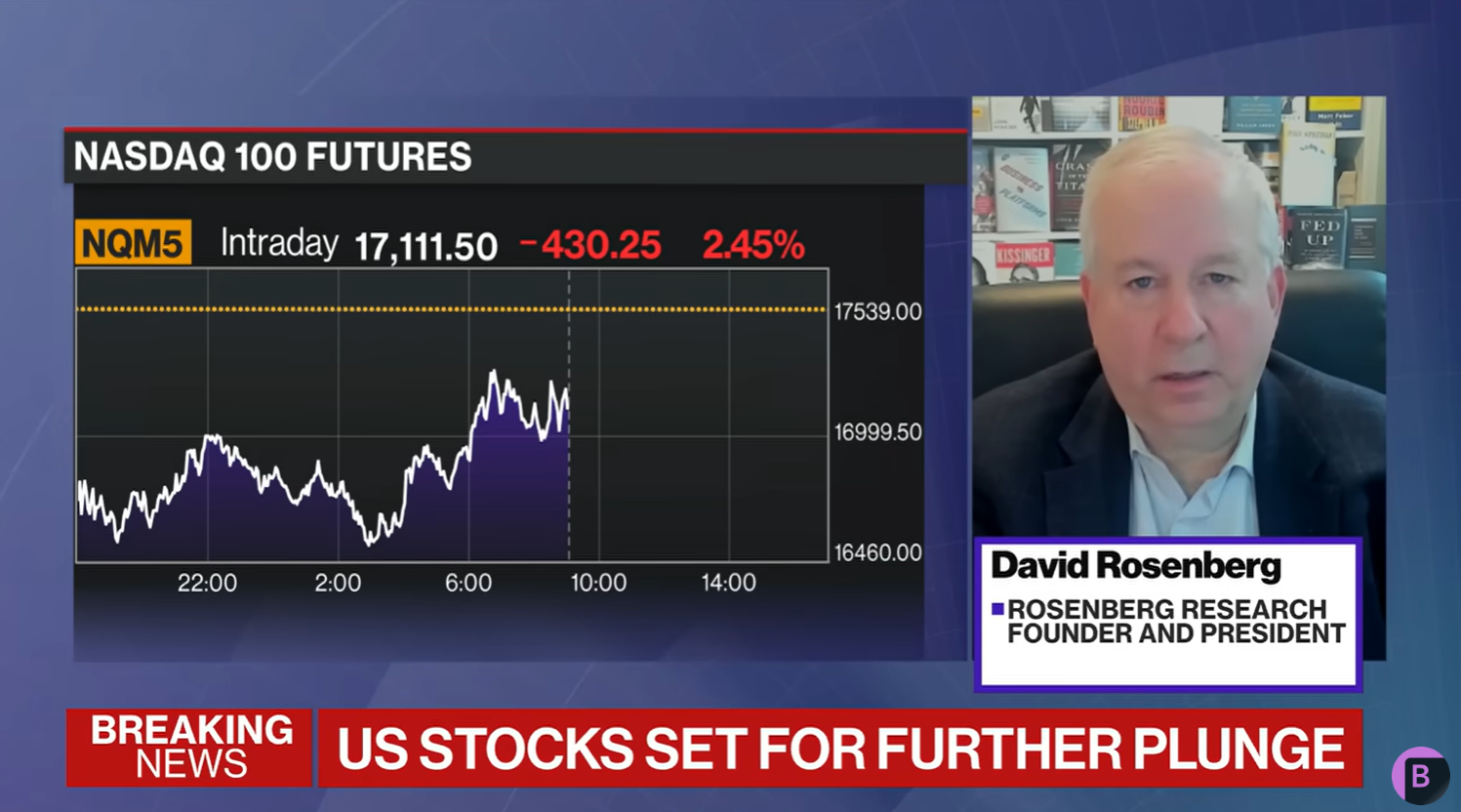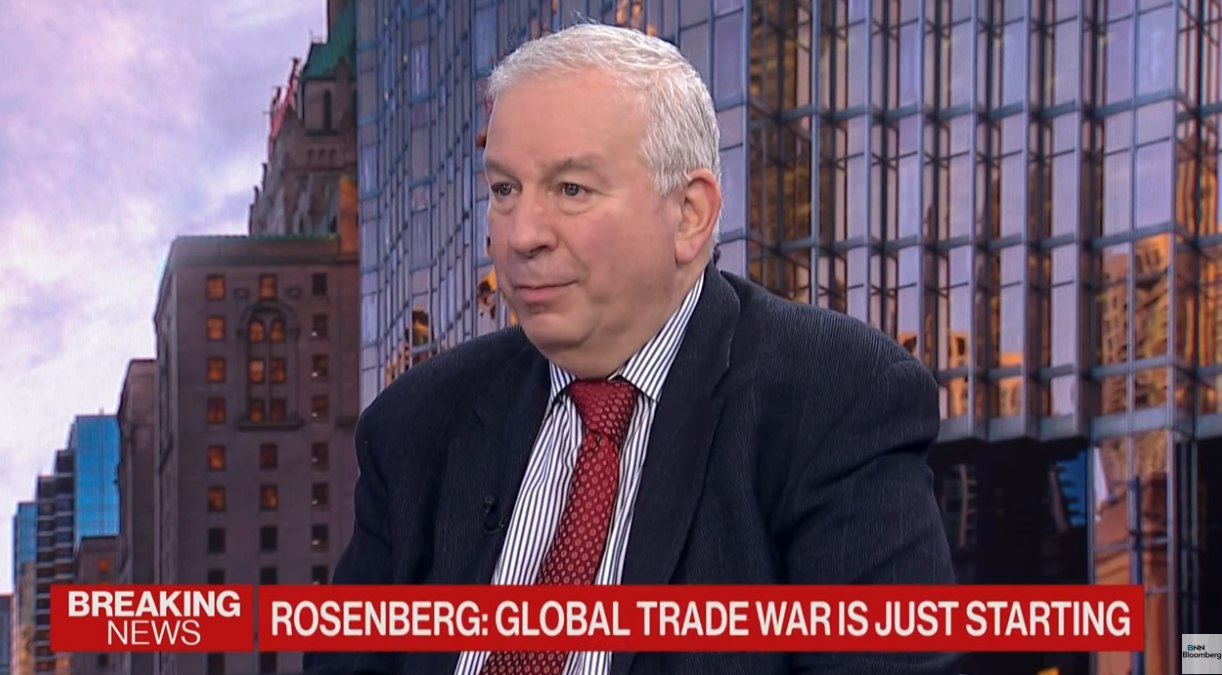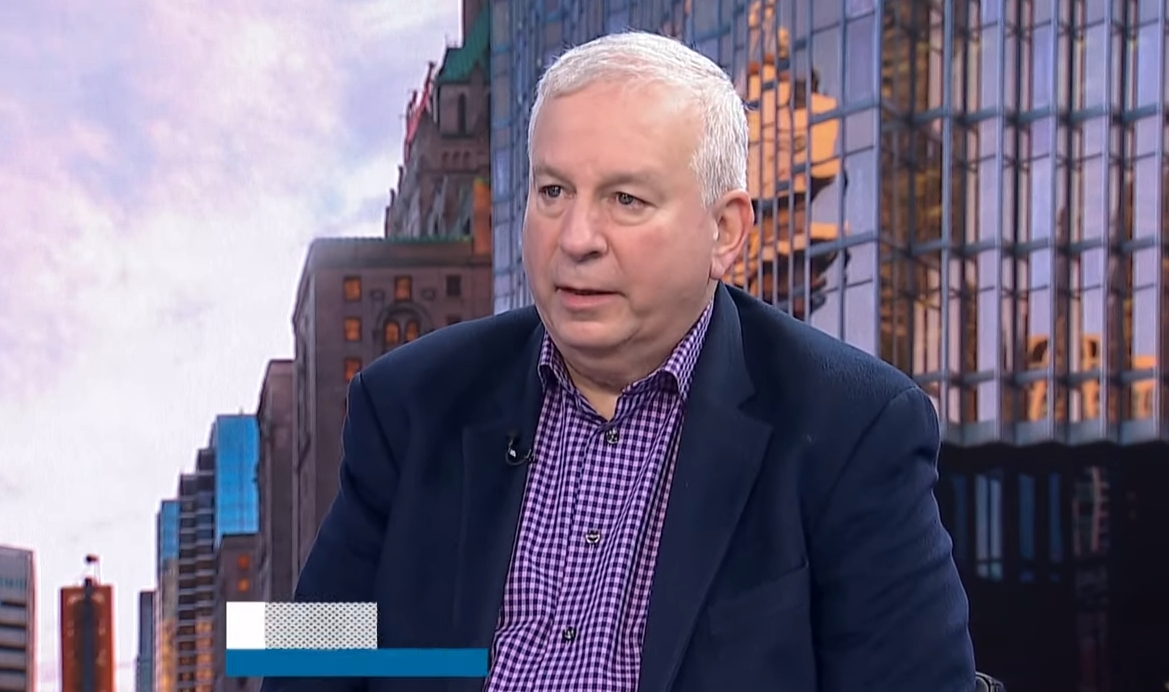Who Made Breakfast?
August 11, 2020
A human resources guru once told me that almost everyone’s professional success can be attributed to one inflection point — a particular event — that often lasts no more than a few minutes. That definitely happened to me at the genesis of what would eventually become Breakfast with Dave. I remember exactly what transpired as if it were yesterday.
In October of 1998, I was working at BMO Nesbitt Burns when I attended the annual client gala at the Royal Ontario Museum in Toronto. This was an important evening, featuring the legendary chef Jamie Kennedy, hundreds of the firm’s top institutional clients, and a feature debate between chief economist Sherry Cooper, who was my boss, and the chief strategist at Harris Investment Management, Don Coxe, who became a dear friend and mentor to me (and a legend in this business). It was always a lively and entertaining evening at these annual Sherry-Don debates.
After the debate had ended, I was at the bar ordering a scotch when a fellow named Bill Downe walked up to me and said, “I’ve been waiting for a chance to meet and talk to you.” I almost choked on my single malt. Bill was one of the most senior people at the investment bank. In fact, he had recently been promoted from another senior role south of the border to head up the entire treasury operation out of Toronto headquarters. What did he want to talk to me about?
In those years, I presented at the majority of the morning meetings for the Treasury group — stocks, bonds, FX, you name it. I spent many an hour on the trading floor. As senior economist, I was responsible for the call on the financial markets, while my colleague and good buddy Doug Porter (now the chief economist) made the forecasts on the real macro front. And here was one of the most powerful people at BMO, seeking me out. I was nervous as hell (as an aside, Bill went on to become CEO of the entire bank from 2007 to 2017, and if there was a Hall of Fame of Canadian bankers, he would definitely be a first-ballot inductee). Here’s how I remember our conversation.
Bill said, “I’ve been attending some of your morning meetings since I arrived in Toronto.” “Uh oh,” I thought. I guess he could see the worried look on my face because he rushed to say, “Oh, don’t get me wrong. Everyone loves your meetings. But you see, you talk way too damned fast and the traders and salespeople can’t keep up, and then it’s a classic case of broken telephone: ‘What was it Rosie said again?’” Then came the inflection point in one sentence. Bill said, “I want you to get your morning meetings down on paper. In fact, I want it to become your own report, call it something snazzy, and we’ll market the hell out of it.”
I was reluctant at first, believe it or not. Extra work. Extra pressure. Physical evidence of calls gone awry! Plus, Sherry would be reluctant to add to my workload. But Bill wouldn’t take no for an answer.
My daily was born that same month. The title wasn’t so “snazzy” – it was called A.M. Notes – but it took off like a rocket ship. And it didn’t take long before I really enjoyed doing it, even though it meant sacrificing an hour’s sleep (or two). Putting my observations down in print meant having even more discipline and conviction because there was no turning back after I pressed send. The Internet was still in its infancy, and A.M. Notes was a pioneer, long before economic and financial dailies became the norm.
The daily was blasted out throughout the bank, and was re-sent to clients, institutional and retail alike, as well as the media. All of a sudden, I was being quoted in the morning papers (not unhappily, I should say. In the prima donna economics industry, there is never anything wrong with a bit of notoriety) and being asked by the equity and fixed income sales teams to meet with their institutional clients. In the months that followed, I met every important portfolio manager and CIO on Bay Street. Within a year, I started to get ranked in the Brendan Woods survey of Canadian economists in the financial industry. The rankings were made sweeter still because I was the only “senior” economist to be right up in the rankings with the “chief” economists on Bay Street.
A.M. Notes became so popular that it was the prime reason that Merrill Lynch Canada hired me away from BMO to be its Toronto based chief economist and strategist back in early 2000. When I was negotiating before I joined, the heads of the bond and stock departments asked me if I could continue doing the daily. I said, “Of course.” They said, “We read it, and see that you talk about everything under the sun in all four corners of the earth.” I said, “Well, thank you.” They said, “No — it’s not a compliment. It’s that we have economists and strategists in New York, Rome, Tokyo, Paris, London, Frankfurt, Mexico City, Sydney… you are basically the Canadian ambassador for the entire Merrill Lynch enterprise. Please tell us you’ll stick to your knitting, that you won’t poke anyone in the eye, that you’ll keep your nose clean and just stick to Canada.” So I lied and said, “Sure thing, no worries.”
It wasn’t more than a year before I was ranked first in economics and third in strategy in that Brendan Woods survey of Canadian institutional investors. I was never a pure strategist, but the folks at Merrill Lynch Canada liked the fact that I didn’t shy away from attaching market calls with the macro calls. I believe we held onto that top spot in economics for close to a decade and were consistently ranked in the top three in equity strategy. The daily was now called, Canada: Morning Market Memo, but enjoyed an even broader distribution with that powerful Merrill sales force.
I ended up getting promoted to the chief economist job in the Big Apple in the Fall of 2002. Candace Browning, who headed up Merrill’s research effort then, and still does today, told me it was really my call if I wanted to continue writing the daily. She was worried I would get burnt out given the already-intense demands of the role. To tell you the truth, it was exhausting. But I reached a point where the daily became a part of me I couldn’t get rid of. It kept me really sharp and I could see that it was a big help to the Merrill trading and sales desks, the famous “thundering herd” of financial advisers, and our clients. While it was painful getting up at 4:00 a.m., I always enjoyed writing the missive (and still do today, though now I sleep in until 4:30!). When I got to New York, I just called it Morning Market Memo. Still not that “snazzy,” but I liked the fact that it was an alliteration.
A few years into my role as chief economist in New York, Patrick Brady, head of Merrill’s U.S. institutional sales force, told me that when I was spearheading the macro strategy effort in Toronto, everyone in the global Merrill system got hooked on the daily. Patrick and I were out for dinner at a great Italian spot we frequented in Tribeca, and I recall him saying something like, “You don’t really know how you got discovered here in New York, do you?” I admitted that I didn’t have a clue. He said that there was one day in 2000 or 2001 when Bob McCann (who had Bill Downe’s job as head of Treasury operations at Merrill at the time) was walking on the trading floor, and saw Canada: Morning Market Memo strewn everywhere — on desks, on chairs, on the floor.
As Patrick put it, “Bob says, ‘you guys are the U.S. desk, why the hell are you reading this stuff from Canada?’” and I replied, “Bob, everyone in the entire global system reads this guy. I’m surprised you don’t.” He apparently put himself on my distribution list shortly thereafter, and it was unbeknownst to me that the senior brass at Merrill had me on their radar screen from afar.
It was Bob McCann who called me in 2002 to ask if I wanted to be considered for the chief economist role in New York. Again, this was a time when few economists were putting out dailies early in the morning. I had a bit of a monopoly going and was just fine with that. There was no better feeling than getting a call from the equity and fixed income sales desk that would go something like, “Hey Rosie, I have the CIO from Fidelity on the line who wants more color on something you wrote in today’s daily.” Within three years in New York, I was ranked in the top three of the Investors Intelligence survey and hung onto that until I left for Toronto in the spring of 2009 (keep in mind that for much of that time, I was way too early on the housing recession and widely viewed as being just plain wrong).
By January or February of 2009, I knew it was time to return to Toronto to be closer to my family. I was on the “bubble,” certain that I was going to resign soon, when the hedge fund desk at Merrill took me out for steak and wine with the senior people at a famous (now defunct) hedge fund (Galleon), and then off to a New York Rangers game at MSG. I sat next to Angela Dalton at the game – she was the co-head of investments at the fund and a valued client.
Not long after the puck dropped, she pulled a report out of her bag and said, “Does this look familiar?” I replied, “Yeah, that’s my report from this morning.” She asked, “Do you remember what you said?” I pleaded ignorance: “I’m thinking more about what I’m going to pen tomorrow.” She then showed me that morning’s Morning Market Memo with writing all over it, including arrows going up and down. She said, “Do you know we meet every morning just on your daily?” Incredulous, I replied, “Come on.” She continued, “It’s true. Now you may not recall what you wrote today, but you pushed us out of one trade and into two new positions. You’re a savant.”
I am not making any of this up, folks. She pointed to the two Merrill sales guys and said out of earshot, “I bet they never told you the commissions we paid them today based on what you had to say.” (Of course, they didn’t!).
Angela revealed that she wasn’t really a hockey fan and suggested we ditch the game and go for a drink and chat. During that conversation, she asked, “Why on earth don’t you start your own research firm?” I wasn’t at liberty to tell her I was on the verge of announcing that I was leaving Merrill, and frankly, I wasn’t sure what my next gig was going to be at that point. But I was intrigued by her idea. Angela asked the server at the bar for a sheet of paper and she mapped the entire strategy for me — to start my own firm. Well, it only took 11 years to turn it into a reality! (Angela Dalton — I owe you a huge dose of gratitude. I have never forgotten who it was that put the bug in my ear!).
Back in Toronto in the winter of 2009, I was negotiating with the Gluskin Sheff folks about joining them. Senior brass wasn’t thrilled about the idea of me continuing on with my daily, but somehow, I convinced them that this would be a win-win but also made it clear that this was a condition of my employment. They relented. After all, we’re talking about my stock and trade here!
Of course, the daily again needed a new snazzy title! At that time, the tag line at Gluskin Sheff was “Stubbornly Unconventional.” I’ll tell you — that really spoke to me because that is who I am and who I have always been. So the new title was not going be something conventional like A.M. Notes or Morning Market Memo.
I turned to family for the answer. Back when my parents were alive, they, my wife and kids and I, along with my sister and her family would meet every Sunday morning at United Bakers, a legendary dairy deli in northern Toronto (pea and bean/barley soup to die for). For years we congregated at the exact same table, and we had the same server, Helen, who we adored.
Well, as I digress, on this one Sunday at United back in April of 2009, just prior to my first day at Gluskin, we were all going around the table debating what the name of the daily should be changed to. The debate got hot, it got intense, as all our family conversations did back then (and still do today!), and our youngest of the three, Michael, who was nine or ten years old, blurted out as he was munching on his pizza bagel, “Breakfast with Dave.” You could hear a pin drop. And then, in unison, we all broke out, “That’s it!” I said, “Mikey, that’s so simple and yet so brilliant… what made you come up with that?” He replied, “Dad, it’s pretty simple. People read your stuff over breakfast and your name is Dave.”
So there you have it. How the title Breakfast with Dave came to be… over a family breakfast on a Sunday morning some twelve years ago. And with a dash of spontaneity from a pre-teen!
Rosenberg Research ©2025 All Rights are Reserved



